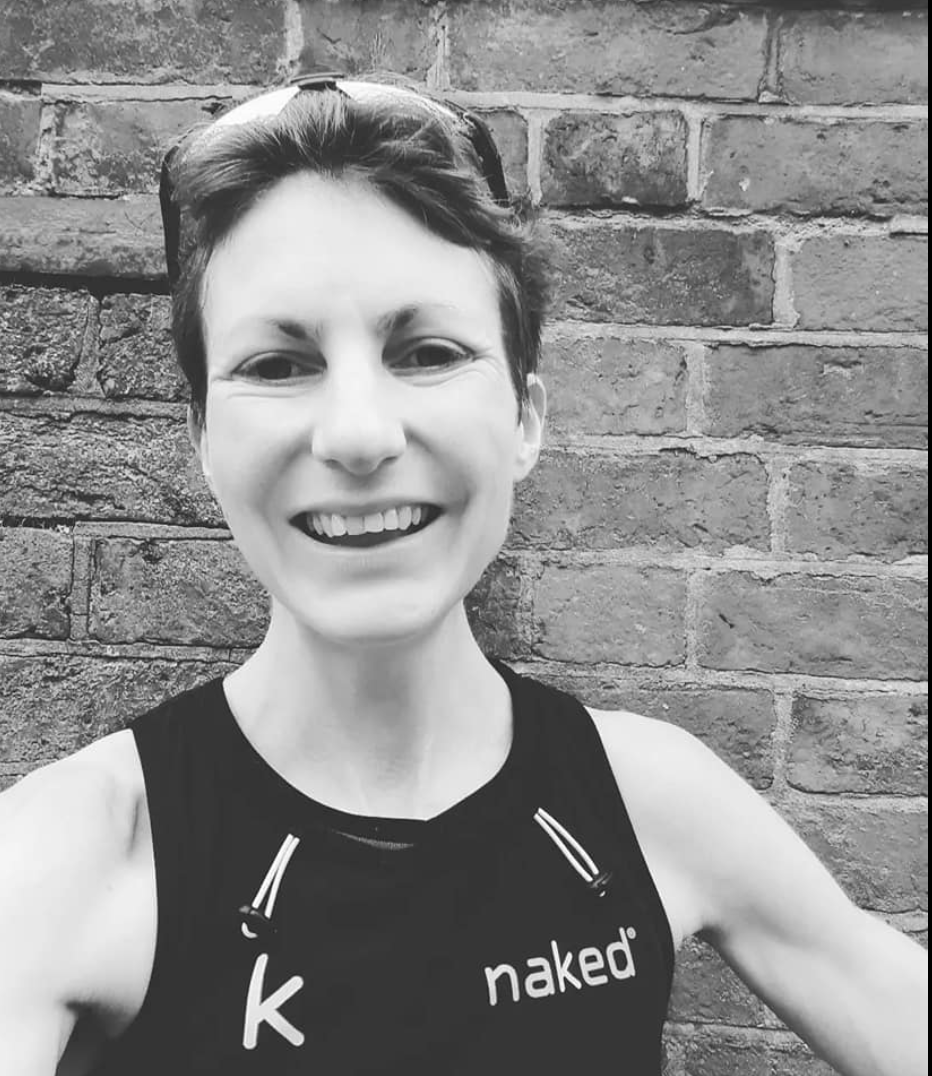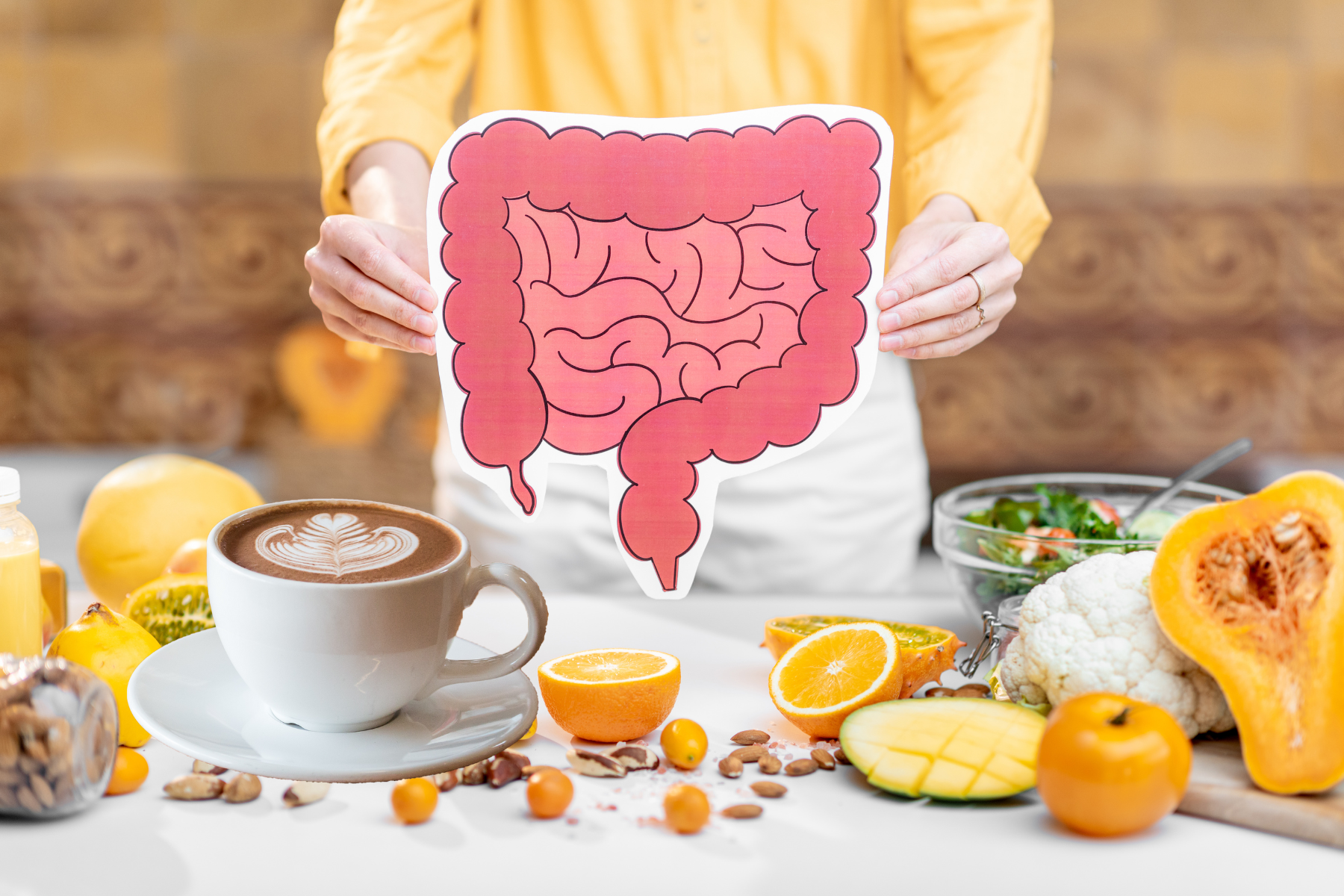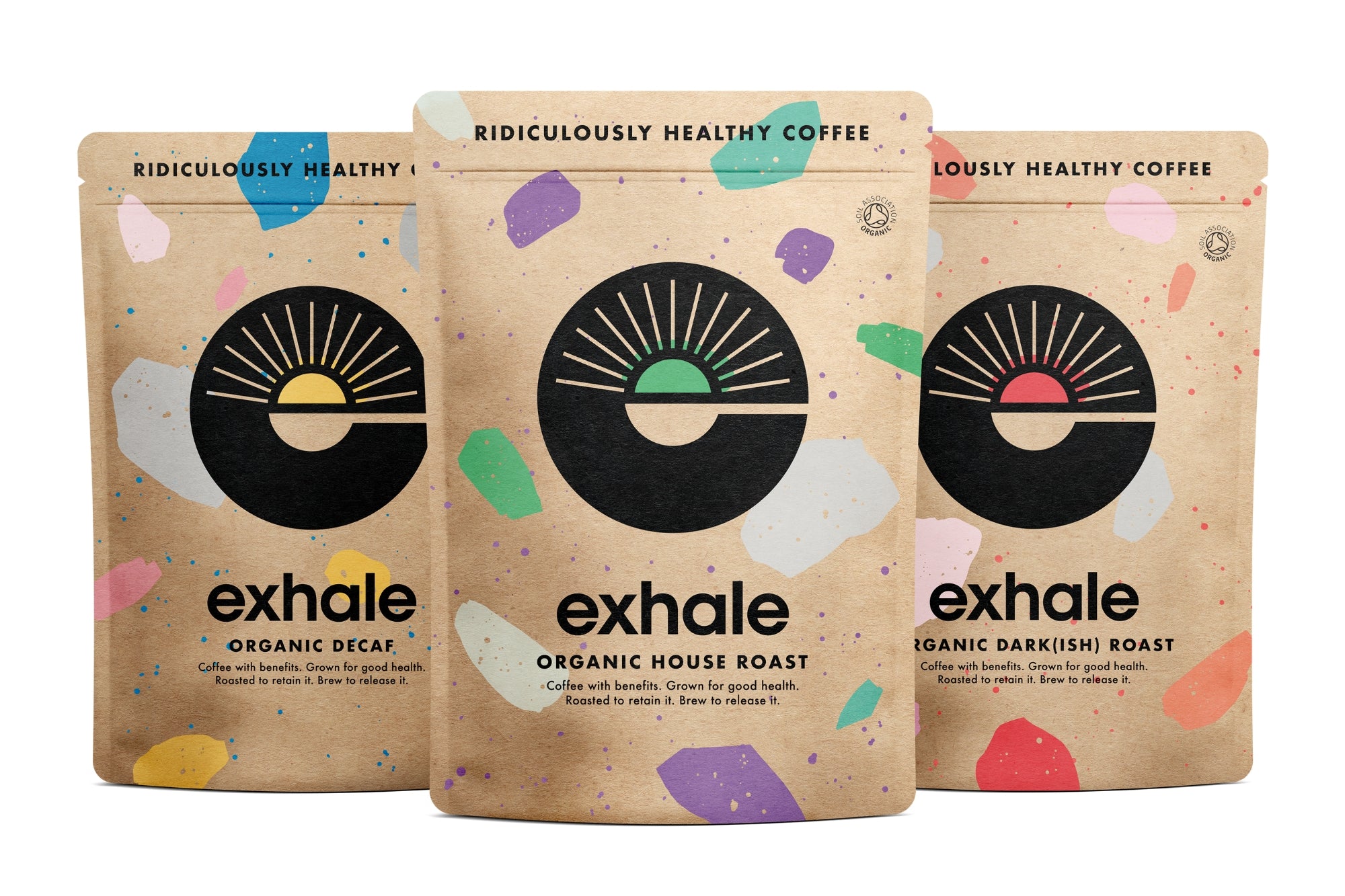
by Francesca Goodwin, auto-immune sufferer & competitive ultrarunner. Exhale customer.
I’ll never forget the night that my body broke. It was a rare weekend off and I had raced to London after work on Friday to meet up with friends for a sea-side weekend in Suffolk. We piled into the back of the car, clutching Doritos and bottles of lukewarm white wine, very much channelling the escapist energies of the festivals of our early 20s (and, unfortunately now that I’ve written it, the lyrics of an Ed Sheeran song…) The next day, we laced up our walking boots and launched ourselves into the fresh, salty air of the neighbouring dunes and woods, swinging on tree branches and jumping over ditches. We curled up that night with greasy fish and chips, board games and a bottle of hazelnut schnapps (don’t ask). So far, so Swallows and Amazons, and, as I tumbled into bed on the second night, I felt pleasantly heavy and wind-swept.
It was the pain that woke me. At first I thought I was dreaming that my legs were being sawn off and I looked down, expecting to gasp in horror as a chainsaw did its grim work. There was no chainsaw but my legs were searing with a pain beyond anything I had ever experienced.
The rest is a bit of a blur. At some point I somehow thought it was a good idea to try and crawl downstairs and lie in a different position. Another moment, and I was dragging myself back up the stairs like a scene from the Terminator. When it became clear that the pain was not abating, I yelped out to my friend in the adjacent room. I couldn’t explain to her what was happening but my face was ghostly and I was sweating: she called 999.
It’s never good when the ambulance crew say, ‘Goodness, how exciting; we don’t know what’s wrong. This is just like an episode of House.’ By this point I was high as a kite on laughing gas and declaring that everyone was a welcome to the birth of my first child. I believe that there is a video somewhere. I also recall, amongst the glee of ‘levitating’ into the back of the ambulance, the vivid feeling of embarrassment and guilt: I had ruined the weekend and there was ‘nothing wrong with me’.
This was a narrative that played out at the hospital. My stalwart friend logged into her Netflix account and distracted me with back-to-back episodes of Friends and hot chocolate but, now without the gas, the pain was palpable and excruciating. I gritted my teeth. When I was finally seen by a doctor, the questions came thick and fast: Had I done anything strenuous? Had I knocked anything? Had anything like this ever happened before? The answers were all no.
Then came the killer: Do you have any mental health issues?
Now, I’m pretty open, both in life and in print, that I have psychological issues. I’ve had disordered eating and depression, now attributed to underlying anxiety and obsessive-compulsive disorder. But I knew that this was different. I knew that this wasn’t ‘just an anxiety attack’ (and I say that with the irony of someone who battles with the rabbit hole of anxiety every day).
So began the years of watching my body disintegrate whilst the prognosis remained the same: ‘Well, your bloods are fine, your reflexes of fine; here’s some morphine (when it was bad), here’s some codeine (when it was not quite as bad), and a letter for your GP’.
By this point the team at A&E knew my name. I felt like a charlatan. I felt like a failure.
Yet still I clearly wasn’t well. There were the days of fatigue and brain fog where everything felt like treacle. The days of deep aching all over my body. The days of kidney stone pain where my side felt like it was being ripped open, without the kidney stone. UTI pain, without the UTI. The days when my skin would break out in excruciating hives. And then, sometimes, the days when a particular joint would feel like it was exploding, as if that chainsaw were back. It felt like I was constantly moving through quick-sand, both mentally and physically, trudging towards a darker, deeper chasm.
It also felt entirely beyond my control: all the experts and specialists could do was tell me that I seemed ‘normal’. One particular diamond of a dermatologist even told me I was vain. This when the boils that had erupted over my eyelids and caused me to have to lie down in a dark room at work in too much pain to cry, were no longer present at our eventual consultation. It wasn’t just disappointing, it was humiliating.
It was eventually conversations with a visiting female GP at my local practice that started to get the ball rolling in terms of exploring the possibility that my situation was a product of inter-linked conditions. There were some auto-immune flares going on, linked to psoriasis, there was (very much less understood) adrenal fatigue, there was fibromyalgia (a chronic pain and fatigue condition), there was some sensory-processing issues. All of it boiled down to a melting pot of a very temperamental immune and nervous system that drastically misfired – particularly in response to stress.
Being finally taken seriously and finding a medical support network was the good news. The bad news: there wasn’t any ‘cure’. There was some hefty medication for the autoimmune issues but for the mystical web of everything else…
One thing that did stick out was that rest alone was not going to fix this. Early on, I had tried resting, even from yoga, and the fatigue still gripped me. It sounds illogical, when tiredness and pain are the main symptoms of an illness, that it was at this point that running entered my life and that running became, not the culprit, but the saviour of this otherwise bleak narrative.
It seemed impossible but the days that I laced up my trainers somehow felt better, both physically and psychologically. I began running more and longer. I felt, for the first time in my life, strong. I felt, for the first time, capable. I ran and ran until I realised that running was the thread that I had been missing from the chaotic, chattering emergency of my life. By the time autumn came of the ‘year I started running’, I had run my first ‘ultramarathon’ (indeed my first race ever) and I was hooked.
It has not been an easy journey: it’s been a long process of learning to listening to my body. Indeed, when I am sick, there are times when running is in fact a bad choice. Added stress when my immune and nervous systems are fired up only leads to all the carefully placed bricks coming tumbling down in a catastrophic fashion. Experience has, however, taught me a lot, and I am gradually getting better and managing the high-wire act that living in my head and body often feels like.

What I do know, is that it is the motivation to keep running, in whatever form that takes, that keeps me looking forwards, that keeps me showing up for each new day and taking something positive from whatever experiences that day brings.
Even on days where it’s everything feels a bit out of sync and firing in the wrong ways, my body still knows that it is doing something: ‘Here I am putting one foot in front of the other and isn’t that freaking awesome!’. And on the days where I need time out? I’ve started to re-frame my relationship with those days. I’m being kinder to myself and showing myself the grace and respect that I would to others. I remind myself of how hard I have battled to just be able to run and that the days off are enabling me to keep doing that. These days also allow me to value myself as a whole being and not just as a runner. I can be the kind of human that I want to be in the world without having to identify myself through superhuman efforts. I am as much me when I am watching TV or reading a book, as when I’m pushing my limits.
There is still the hope, deep down, that maybe there will one day be a magic bullet cure, particularly on days when the dark cloak of fatigue settles over me. On these days, it’s about self-affirmation: I don’t need ‘fixing’. It’s about acceptance: this is the reality of my body in all it’s Bambi-legged, skittish, queerness and that’s ok. It’s about gratitude: I’m grateful for what my body can do in this moment and for whatever tomorrow brings. It’s also about joy and love. It’s about throwing out the aeroplane arms, putting on some banging tunes and – whether it’s running down a hill like a prancing pony, doing physio rehab exercises or simply having a bath like a recovery superhero – repeating: I’m here, I’m enough, I’m a runner.

Francesca’s Tips
Firstly, not all chronic pain and auto-immune conditions are the same and what works for me might not work for others.
Secondly, a quick note re auto-immune conditions: they are a type of disorder in which your own immune system starts to attack your own body. Some auto-immune disorders may only affect a single organ, others may only impact upon certain types of tissues and joints, while others impact your entire body. In an athlete, any type of auto-immune condition can impair their ability to train, recover, and perform.
So, what has been helpful for me?
• Training to feel. If I’m feeling good, my symptoms are under control and my recovery has been on point, then I can push my mileage and intensity a little. Alternatively, if I’m tired, run down, and dealing with work or some stress, then it’s time to focus on low impact exercise, baths and foam rolling. The exception to this rule is if you pick up a virus or infection. Then, don’t listen to your body, listen to your head. Wait until you are clear of symptoms for a day, then add a day for every day you were sick. Only then ease back into training – gradually.
• Cross-training. Running is, admittedly a high impact sport and I have found that, although I need to keep mobile, mixing in yoga and stretching, as well as doing most of my high intensity sessions on the indoor bike (which I have grown to love) works for me.

• Diet. Reducing inflammation in the body is key to managing auto-immune flares, and I try to incorporate things like turmeric, seafood and berries into my diet, as well as staying clear of things with artificial sweeteners, added sugar and saturated fats. I eat plenty of complex carbohydrates and protein to fuel and recover from training and ensure that I am eating enough to fuel the ‘work done’ before, during and after exercise. I work with Active Root and Hilltop Energy to fuel my training and racing. Both of these, although containing fast release carbohydrates, are based on ginger and honey respectively, and work really well for me. Hydration is also hugely important and I ensure that I am drinking little and often throughout the day and, as a heavy sweater, also top up my electrolytes between and during training, especially in the heat. I’ve also started using Exhale coffee as another string to my anti-inflammatory bow. I drink it before heading out the door on a run, or before hopping on the bike, and, so far, it energises me without the GI issues and adverse inflammatory effects that I have experienced with other coffees.
• Sleep. Quality sleep is often on the back-burner when I’m teaching, but I know that it’s absolutely key to both preventing inflammation and aiding recovery. I avoid caffeine in the afternoon and have a regular bedtime routine of a hot bath and gentle stretching before settling down with a book and warm spiced milk before bed. I don’t abstain from alcohol and love a beer after (or sometimes during!) a run, but I hardly touch it during the week and never in the lead up to longer training runs and races.
• Yoga and Breath Work. I practise Ashtanga yoga, which I find mimics and complements the ‘flow’ and rhythm of running. It’s another way of switching off my brain and keeping my body flexible and strong when I’m not pounding the pavements. I’m also a qualified pranayama teacher, and I find that breathing techniques are something that help both my sleep and anxiety. A simple practice for self-soothing is to simply extend your exhale by a few seconds. Breathe in through your nose into your abdominal region (place your hands on your belly and they should rise as you breathe in) and then breathe out slowly and gently through your mouth.
The main take away is that, although autoimmune disorders are debilitating, you are not your illness. Tailoring your training and lifestyle to your needs and how you feel is paramount and know that you are definitely not alone.





Leave a comment
All comments are moderated before being published.
This site is protected by reCAPTCHA and the Google Privacy Policy and Terms of Service apply.